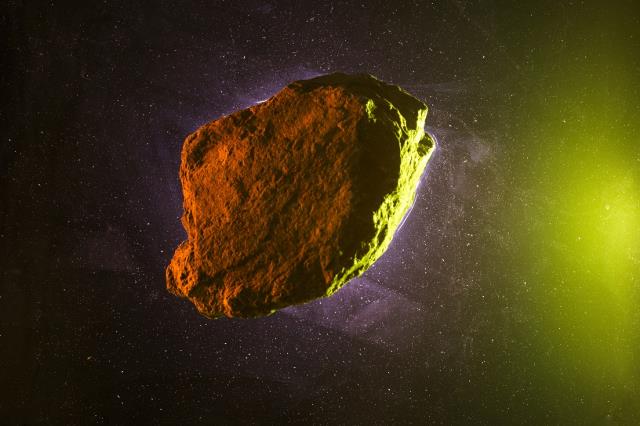“City-Killer” Asteroid to Buzz Moon in Close Call, Spares Earth
A potentially hazardous asteroid large enough to level a major city will zip past Earth this week, instead making a close approach to the Moon—and astronomers confirm our planet is safely out of harm’s way.
The Close Encounter: Key Details
- Asteroid designation: 2024 GJ2 (estimated 100-300m wide)
- Closest approach: 184,000 km from Earth (half the Moon’s distance)
- Speed: 50,000 km/h
- Threat level: Zero impact risk, but classified as “potentially hazardous” due to size
Why Scientists Are Watching Closely
While this space rock poses no danger, astronomers are tracking it because:
✔ Its size qualifies as a “city-killer” (could destroy a metropolis if it hit)
✔ The lunar flyby helps refine orbit prediction models
✔ Demonstrates the importance of asteroid detection systems
How Close Is “Close” in Space Terms?
- Moon distance comparison: Closer to us than the Moon (384,400 km)
- Cosmic scale: Extremely near in astronomical terms
- Historical context: One of the top 10 closest approaches ever recorded for an asteroid this size
Planetary Defense: What If It Were Heading For Earth?
NASA’s DART mission (which successfully altered an asteroid’s path in 2022) proves we’re developing deflection capabilities. This event highlights why:
- Early detection is critical (this asteroid was spotted weeks in advance)
- International monitoring networks (like NASA’s Planetary Defense Office) are essential
When’s the Next Big Asteroid Threat?
NASA confirms no known large asteroids pose an impact risk for at least the next 100 years. Ongoing sky surveys discover ~500 new near-Earth objects monthly.
The Bottom Line
While this “city-killer” asteroid gives astronomers a valuable close-up study opportunity, Earth remains safe. The event underscores both our solar system’s dynamism and humanity’s growing ability to track cosmic threats.
Look up (but don’t worry)! The asteroid will be too faint for naked-eye viewing, but observatories worldwide will monitor its passage.



Comments (0)
No comments yet. Be the first to comment!
Leave a Comment